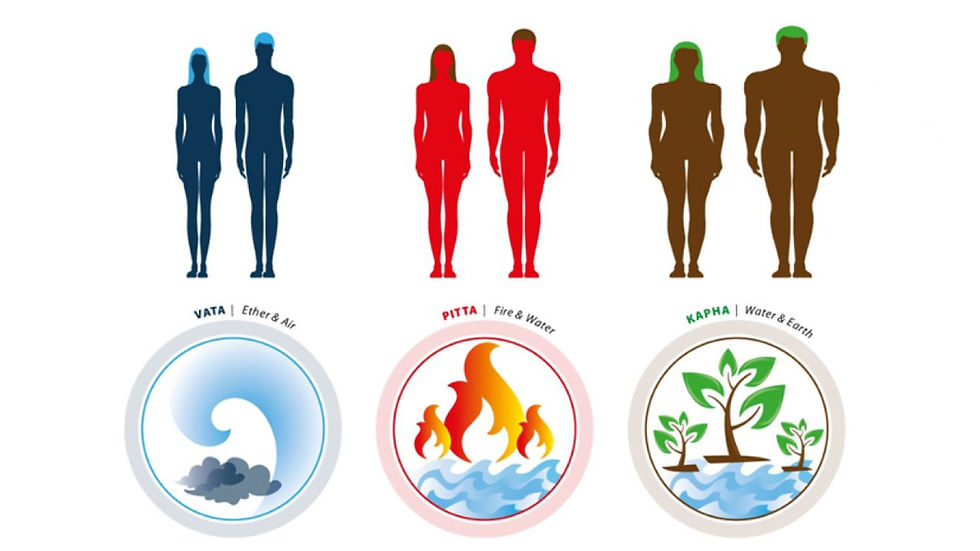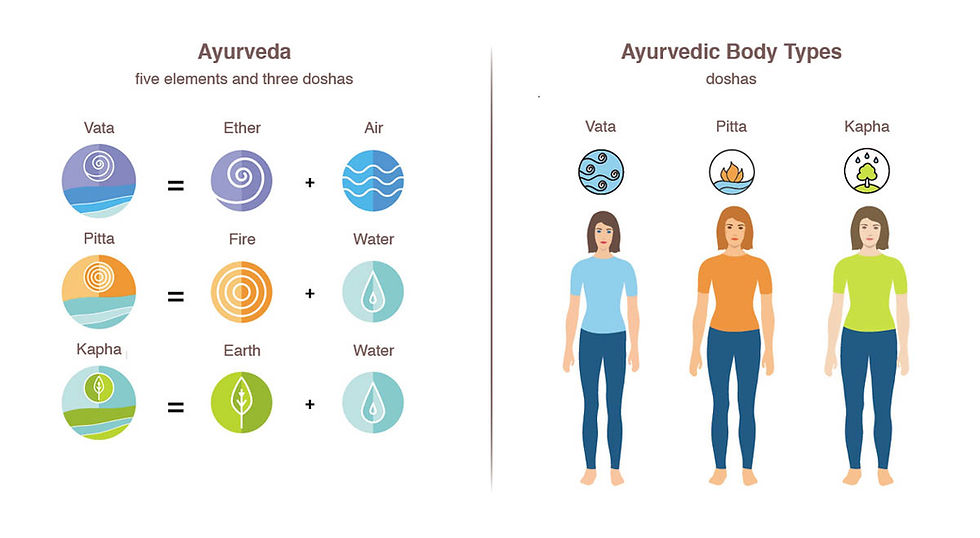Understanding Ayurveda: The Ancient Science of Life
As the CEO of Innate Biotics®, I have always been deeply fascinated by the ancient practices that have stood the test of time, providing holistic health and wellness for thousands of years. One such profound system is Ayurveda, a traditional form of medicine that originated in India over 5,000 years ago. Ayurveda, often referred to as the "Science of Life," is a comprehensive and natural approach to health, focusing on balance, prevention, and the interconnectedness of body, mind, and spirit.
A Brief History of Ayurveda
The roots of Ayurveda can be traced back to the Vedic culture of India, with its principles documented in the Vedas—ancient texts that are among the oldest scriptures known to humanity. The primary texts that form the foundation of Ayurvedic knowledge are the Charaka Samhita, Sushruta Samhita, and Ashtanga Hridayam. These texts outline a sophisticated understanding of physiology, pathology, and therapeutic methods.
Ayurveda was traditionally practiced by ancient Indian sages, or "rishis," who believed that health was achieved through a harmonious balance between an individual and their environment. They viewed disease as a result of imbalances in the body and disruptions in this harmony. Over millennia, Ayurveda evolved into a detailed system of medicine that not only addresses physical ailments but also offers guidance on diet, lifestyle, and mental well-being.
The Principles of Ayurveda
At its core, Ayurveda is based on the concept of the five elements—earth, water, fire, air, and ether—which combine in various ways to form the three doshas: Vata, Pitta, and Kapha. Each dosha represents a unique combination of these elements and governs specific physiological functions in the body.
Vata (Air and Ether): Vata is responsible for movement, including circulation, respiration, and nerve impulses. It is associated with qualities such as lightness, dryness, and cold. When Vata is balanced, creativity and vitality flourish, but when imbalanced, it can lead to anxiety, insomnia, and digestive disorders.
Pitta (Fire and Water): Pitta governs transformation, including digestion, metabolism, and temperature regulation. It is characterized by heat, intensity, and sharpness. A balanced Pitta promotes intelligence and clarity, while an imbalance can manifest as anger, inflammation, and ulcers.
Kapha (Earth and Water): Kapha controls structure and stability, providing the body with strength and immunity. It is associated with qualities such as heaviness, moisture, and cold. Balanced Kapha brings calmness and endurance, but an imbalance can lead to lethargy, weight gain, and congestion.
Ayurveda teaches that each person has a unique constitution, or "Prakriti," which is determined by the predominance of these doshas at the time of birth. Understanding one's Prakriti allows for personalized health strategies that maintain balance and prevent disease.
Ayurveda in Holistic Medicine
Ayurveda is a truly holistic system, addressing the physical, mental, and spiritual aspects of health. It employs a wide range of natural therapies and practices, including:
Herbal Medicine: Ayurveda uses a vast array of herbs and plant-based substances to restore balance and treat various conditions. These herbs are often combined into complex formulations tailored to an individual's needs.
Diet and Nutrition: Diet plays a central role in Ayurvedic healing. Foods are categorized by their qualities and effects on the doshas, and dietary recommendations are customized to balance an individual's constitution.
Detoxification (Panchakarma): Panchakarma is a series of cleansing therapies designed to eliminate toxins from the body and restore balance. It includes practices such as massage, steam therapy, and herbal enemas.
Lifestyle Practices: Ayurveda emphasizes daily routines, known as "Dinacharya," which include practices like oil massage, meditation, and yoga to maintain health and prevent disease.
Mind-Body Connection: Mental and emotional health are considered integral to overall well-being in Ayurveda. Techniques such as meditation, pranayama (breathing exercises), and mindfulness are used to promote mental clarity and emotional stability.
Top 10 FAQs About Ayurveda
Over the years, I have received numerous questions about Ayurveda from those seeking to understand this ancient system. Here are the top 10 frequently asked questions:
What is the difference between Ayurveda and Western medicine?
Ayurveda focuses on prevention and holistic treatment, emphasizing the balance of the body, mind, and spirit. Western medicine tends to focus more on treating specific diseases and symptoms, often using pharmaceutical drugs and surgery.
How do I know my dosha?
Your dosha can be determined through a detailed consultation with an Ayurvedic practitioner, who will assess your physical characteristics, mental traits, and lifestyle habits to identify your Prakriti (constitution).
Can Ayurveda cure chronic diseases?
Ayurveda can effectively manage and, in some cases, reverse chronic diseases by addressing their root causes. However, it may require a combination of dietary changes, herbal treatments, and lifestyle adjustments.
Is Ayurveda safe for everyone?
When practiced correctly, Ayurveda is safe for most people. However, it is essential to consult with a qualified Ayurvedic practitioner, especially if you have existing health conditions or are taking medication.
What are some common Ayurvedic herbs?
Common Ayurvedic herbs include Ashwagandha (for stress and energy), Turmeric (for inflammation), Triphala (for digestion), and Tulsi (for immunity). Each herb has specific properties that benefit the doshas.
Can Ayurveda help with weight loss?
Yes, Ayurveda offers personalized dietary and lifestyle recommendations to promote healthy weight loss by balancing the doshas and improving digestion and metabolism.
How does Ayurveda view mental health?
Ayurveda considers mental health as integral to overall well-being. It uses herbs, dietary guidance, meditation, and yoga to balance the mind and emotions, addressing issues such as anxiety, depression, and stress.
Is Ayurveda compatible with modern medicine?
Ayurveda can complement modern medicine, offering holistic support alongside conventional treatments. However, it is crucial to work with healthcare providers to ensure safe and coordinated care.
What is Panchakarma, and who should undergo it?
Panchakarma is a detoxification and rejuvenation therapy that helps remove toxins from the body. It is recommended for individuals looking to reset their health or address specific imbalances, but it should be done under the supervision of an Ayurvedic practitioner.
How long does it take to see results with Ayurveda?
The timeframe for seeing results varies depending on the individual and the condition being treated. While some may experience immediate benefits, others may require more extended periods of consistent practice to achieve lasting results.
Conclusion
Ayurveda is not just a form of medicine; it is a way of life that promotes harmony and balance in every aspect of our being.
At Innate Biotics®, we integrate the ancient wisdom of Ayurveda into our holistic treatments, empowering individuals to achieve optimal health naturally. Whether you are new to Ayurveda or seeking to deepen your understanding, I encourage you to explore this timeless science and discover the profound benefits it offers.
---
Dr. Lazuk,
Chief Dermatologist & CEO
CALL NOW
+1 (770) 762-5881
VOTED BEST MEDSPA:
ATLANTA | BUCKHEAD | JOHNS CREEK | SANDY SPRINGS | MILTON
ROSWELL | DUNWOODY | PEACHTREE CITY | SUWANEE
BROOKHAVEN | DECATUR | VININGS | EAST COBB | DRUID HILLS | CUMMING

























Comments